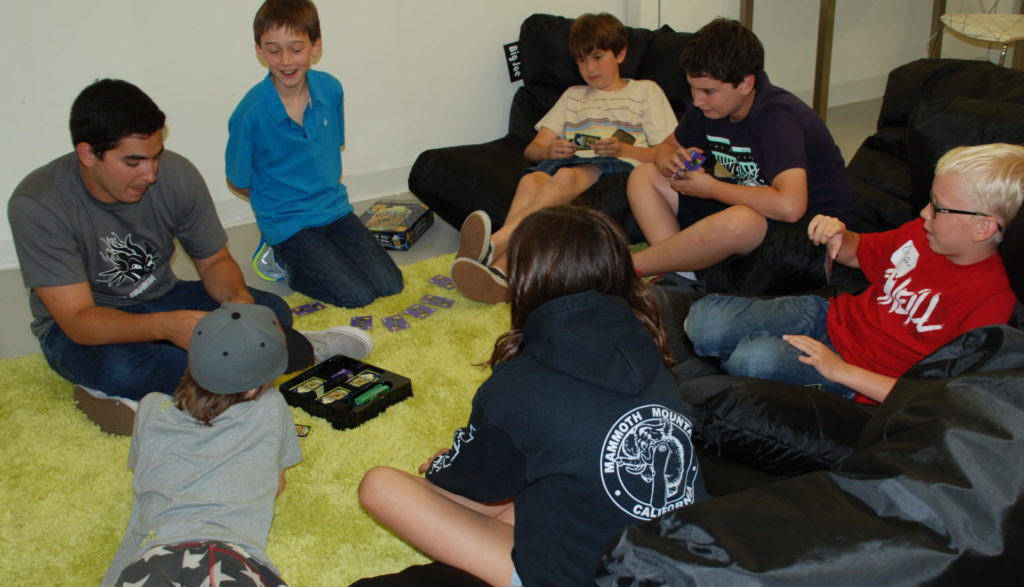What is Free Play and why is it important for everyone? We have the answers to what to look for when carving out some quality free play during the upcoming holiday season!
What Gifts Will Encourage Free Play? We Have the Handy Guide and Checklist!
As we enter the holiday season, there’s a lot to be thankful and joyous for. While we’re still in the thralls of so much, we’re hopefully more able to spend more time with family and loved ones. If your home is anything like ours, the food and conversation is usually accompanied by games. Whether it’s an old school game like Spoons or a lengthy endeavor tabletop game like Settlers of Catan, we usually gather around to play. As we look to shop for gifts and plan out our holidays and with the rise of powerful portable devices like smartphones, Nintendo Switches, and Meta Quest 2s, I think it’s extra important to take time to assess the current state of play and what it looks like in this ever evolving digital age. Specifically, we’ll be looking into “Free play,” which we can often see around the holidays and during family gatherings.
First, as usual, we’ll outline why “Free play” is important. From an aggregated number of research sources (5Rights Foundation / LEGO Foundation), here is a list of reasons why “Free play” critical to our growth:
- Play is necessary for development.
- Play is a spontaneous mode of self-directed learning.
- Play is an effective means of teaching and guidance.
- Play is therapeutic.
- Play is a contribution to and enactment of wellbeing.
- Play is everyone’s right.
From there, we can define the characteristics of “Free play:”
- Intrinsically motivated: I play like that because I want to.
- Voluntary: I can start and stop playing when I want to.
- Open-ended: When I play like that, I have the power to make up what will happen next.
- Imaginative: I use my imagination when I play like that.
- Stimulating: Playing like that can be an exciting or challenging experience.
- Emotionally resonant: I have a lot of different feelings when playing like that.
- Social: I like talking with other people about playing like that.
- Diverse: People can be playful in different ways that are important to them.
- Risk taking: When playing, I can be naughty or break some rules without being told off.
- Safety: I feel safe when I play like that.
- Sense of achievement: After playing like that I feel really happy that I’ve achieved something.
- Immersive: When playing like that, I feel like I’m in a different world.
So here’s the holiday nudge: The next time we’re able to gather with family, friends, loved ones, beyond the good food, make room on the table for some fun and play. If it happens naturally, observe it and see which characteristics are being exhibited. When we are shopping for gifts, pop this list out and check where what you’re about to purchase meets the aforementioned qualities.
TLDR; Holiday cheer from food to seeing family and loved ones is often accompanied by various forms of play. Play, as we have outlined many times before, is critical for our health – regardless of age. When you’re doing your holiday shopping, refer to the list above to check whether what you’re considering is naughty or nice when it comes to offering “Free play.”
About the Author:
John Balash was instrumental in Digital Dragon’s launch in 2013 as its first Curriculum Director and is now back in the fold as a consultant on all the latest and greatest in tech education.This is John’s latest contribution to a monthly blog series we’ve launched, Tech News from the Frontier. John is the Director of Educational Engagement at Carnegie Mellon University’s Entertainment Technology Center. John has worked on educationally-focused initiatives with clients ranging from D.A.R.P.A. to Disney. Working from both sides of the desk, you can find John in classrooms and conferences around the world exploring new uses for technologies in learning environments.

